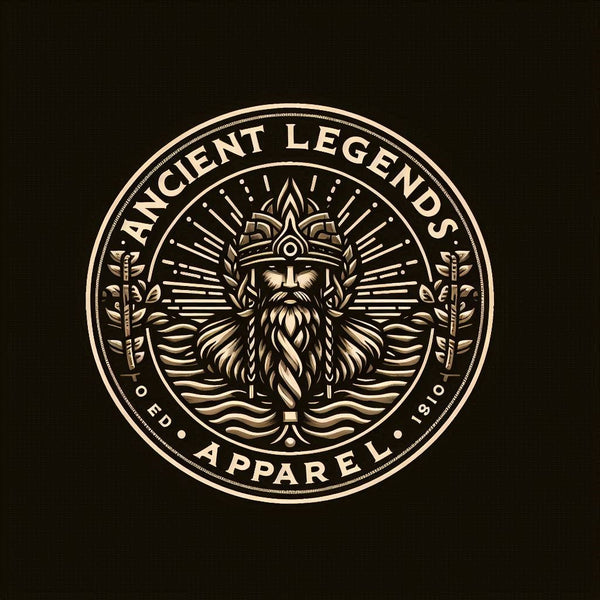How Greek Mythology Influenced Modern Fantasy
Karl FShare
INTRODUCTION
For thousands of years, humanity has looked towards the heavens and pondered the fathomless mysteries of the cosmos. This universal intrigue has given rise to a myriad of stories, tales, and legends about the gods and other supernatural entities that supposedly embodied the forces of nature. And from this treasure trove of lore, few captivate the human imagination quite as dramatically as the mythos of ancient Greece. Intricate, majestic, and fraught with the drama of gods and goddesses, heroes and villains, these tales continue to inform the artistic, literary, and cultural endeavors of our time. More specifically, many elements of modern fantasy have their roots nestled deep within the bosom of Greek mythology.
ORIGIN AND CULTURAL CONTEXT
Greek mythology harkens back to the ancient Mycenaean civilization which flourished around the 15th century BCE. Their religion, infused into the Homeric epics 'Iliad' and 'Odyssey', predates classical Greek culture and even forms the backdrop for these timeless narratives. In these early echoes of ancient lore, gods are depicted as intertwined with the natural world, invoking thunderstorms or parting the seas at will, while heroes like Hercules tamed fantastical beasts.
THE LEGEND OR STORY
At the heart of these myths are vibrant stories, each bristling with symbolism and profound societal insights. A seminal tale is that of Prometheus, a titan who stole fire from the gods to gift humanity with knowledge. For his transgression, Zeus, the king of gods, sentenced him to everlasting torment. Yet, despite the reprisal, Prometheus’ sacrifice symbolizes the audacity of mankind's quest for enlightenment despite divine decree. A blend of rebellion, sacrifice, and the pursuit of knowledge, this tale reverberates across the echo chambers of time, finding analogs in modern fantasy.
INTERPRETATIONS AND SYMBOLISM
Greek mythology leaves a trail of symbolic breadcrumbs, leading us through a labyrinth of human insights. Each god symbolizes a facet of life — Artemis is the huntress, Aphrodite shows the power of love, and Ares embodies the essence of war. Heroes like Perseus, who slays the gorgon Medusa, represent courage and valor — universal attributes in every mythology's pantheon. The Minotaur, a beast trapped in a labyrinth, symbolizes the inner demons we all must face. These symbols have echoed through the ages, finding a warm hearth in contemporary fantasy's symbology and thematic landscapes.
COMPARISONS IN OTHER CULTURES
Though ancient Greeks were pioneers in myth making, similar threads can be found in other cultures. The Norse gods also meddled in human affairs, their sagas replete with treachery, heroism, and the inevitable doom of Ragnarok. Like Hercules, Beowulf struggled against beasts and the supernatural. Eastern legends, too, have supernatural deities interacting with the mortal realm. This universality of ancient mythologies is reflected in the diversity of modern fantasy — Westeros mimics Europe in its geopolitical skirmishes, while elements of Middle Eastern folklore live on in tales like 'Aladdin.'
MODERN REFERENCES AND POP CULTURE
Greek mythology's impact is clearly apparent in popular fantasy. The 'Percy Jackson' series reimagines the Greek pantheon in modern times while JK Rowling's 'Harry Potter' series brims with mythological undertones — the forbidden fruit from the Garden of Eden is reflected in the cursed Philosopher's Stone. George RR Martin's 'Game of Thrones' borrows concepts from ancient sagas, with the Wall reflecting the boundaries of the world in ancient cartography, or Atlas holding up the heavens. Least of all are the numerous depictions of dragons, cyclops, and other fantastical beasts which draw direct inspiration from mythic lore.
LEGACY AND LASTING MYSTERIES
As we delve deeper into Greek mythology, much remains shrouded in obscurity, the puzzle pieces of a forgotten past. The complexities of these myths, their enduring nature, and the mysteries they pose to archaeologists and historians alike, continue to provoke scholarly debate. Yet, their influence remains an undeniable fact of our cultural landscape. Greek mythology lies at the heart of fantasy—modern tales are simply the latest telling in a storytelling tradition that began millennia ago. As we soar on the wings of dragons or explore kingdoms conjured from imagination, we tread a path illuminated by the legacy of Greek gods, heroes, and monsters. That is far from coincidence. Rather, it is a testament to the lasting power of these ancient legends, and their ability to captivate the human heart, irrespective of the era.
